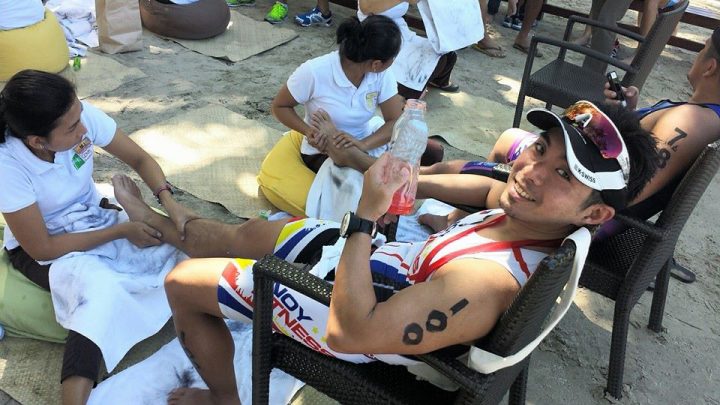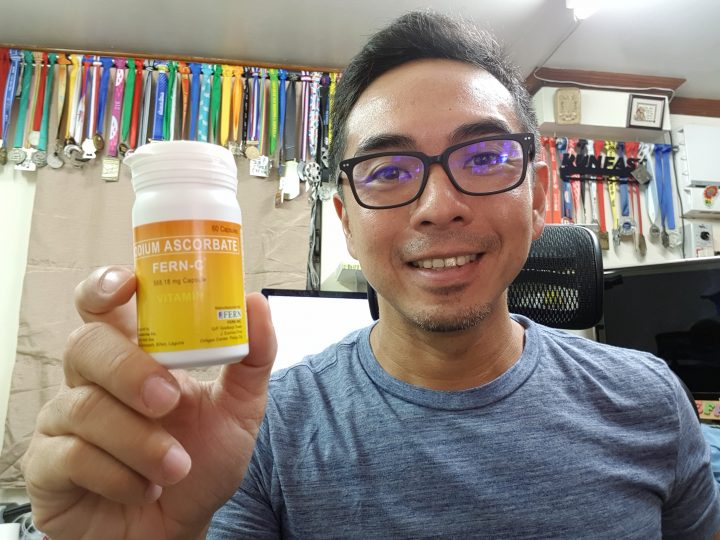
8 Things I Learned in 8 Years of Running
Running looks too simple. All you need is a good pair of running shoes, put one foot in front of the other and you’re good to go. It seems like everyone can do it, but if that is true, then everyone now is a runner.
The truth is, this simple sport can become quite complex, every time you want to go longer, or faster, challenges seem to pop out from nowhere. Failure to manage these challenges can force you to slow down or completely stop from running.
After running for 8 years, here are a few things I learned that might help you make running a lifetime sport.
1. Invest in a Good Pair of Shoes
A lot of people (including myself) started by believing that they can run with any type of shoes… I myself started with my old pair of badminton shoes. This might sound practical but running with the wrong shoes can quickly lead to unwanted injuries that can cause you to stop running sooner.
Related: How to Find the Right Running Shoes
2. Don’t go Too Far Too Soon
Recently, I encounter a lot of runners jumping to a 21K race with less than a few months of run training. Yes I understand, you want to get that half marathon medal as soon as you can, but you should also make sure your body is ready to go the distance.
Indeed our body is capable of doing more than we ever dreamed of; you can run, walk, crawl and eventually finish the race, but running a half-marathon or even a marathon you are not prepared for can make the experience unpleasant enough for you to quit running for a while.
Take your time, there will always be more race to join, the rule of thumb is to never increate mileage for more than 10-15% per week. For returning runners, same rules apply; we all have to start again from 0.

3. Respect Recovery Days
When it’s time to rest… REST. Don’t go out and run on your rest days. Your body needs the time to recover and repair broken down muscles. Failure to respect rest days can lead to more fatigue later on in your training.
And no, you’ll not get slower by resting for a day or two.
4. Prioritize Sleep
Sleep is for the weak… well, not for runners. Trading Z’s for mileage can lead to unwanted results, I’ve seen people faint, throw up or hospitalized due to hard training and lack of sleep. For runners, sleep is a very important part of recovery and is critical for performance; it’s the time your body heals to help you become stronger and faster.
We normally can’t sleep before the big race, that’s ok, but make sure you’re well rested the entire week. If you’re feeling sleepy or weak, skip a workout or two, your body will thank you later.

5. You have to Eat Well
I used to think I can eat anything I want because I run… took me 3-4 years to realize how wrong that mindset was. True, on peak months I would lose pounds quickly while doing my daily speed and long runs, but the pounds would quickly gain back during off season.
Lately I learned that you have to Eat Well regardless if you are on-or-off season, I decided to reduce or stay away from sugary products and simple carbs on most days. But I do still reward myself with a can of soda or Ice Cream once in a while ;)
6. Drink More Water
To be more specific, on normal days, drink less juice and soda and more water. We’re active and we sweat a lot… dehydration can impair performance and slows down recovery and consuming too much sugary drinks can make you fat. Both unwanted situations.
7. Know when to Stop Running
Learn to differentiate Soreness from Pain, soreness due to muscle fatigue should recover in a few days, but pain due to injuries can last for weeks.
One of the worst injuries I got was Plantar Fasciitis, as a newbie runner back then I would still try to squeeze in a couple of runs during the week because I’m afraid to lose the endurance I have built over the year… lo and behold, the injury got worse.
There will always be some time when you need to stop, think and rest for injury to heal. If you’re afraid to lose your endurance, try other sports for the meantime, like swimming.

8. Don’t Skimp on Supplements
Fish Oil, BCAA, Whey Protein and Vitamin C are some of the supplements that can help your body during training.
One thing I learned is that potency and quality is very important, you might think you’re buying a cheaper alternative but in reality you’re also getting half as much of the nutrients your body needs. You have to check the label, and trust a brand that makes quality products.
As an acidic person, I have limitations on what kind of Vitamin C I can ingest. So I need to choose a Non-Acidic Vitamin C like FERN-C.
Vitamin C is one of the most basic supplements you can take to help boost your immune system, especially after continuous workouts, it helps increase body resistance from infectious diseases. It’s a potent anti-oxidant that helps promote gums, teeth, bones, and skin health and hastens wound healing.


Yes, running may look simple. But to keep on running for many years requires discipline, consistency, determination and perseverance. Keep these 8 things in mind next time you hit a wall, but never stop believing you can. Always remember, Tiwala ako na KAYA KO!






